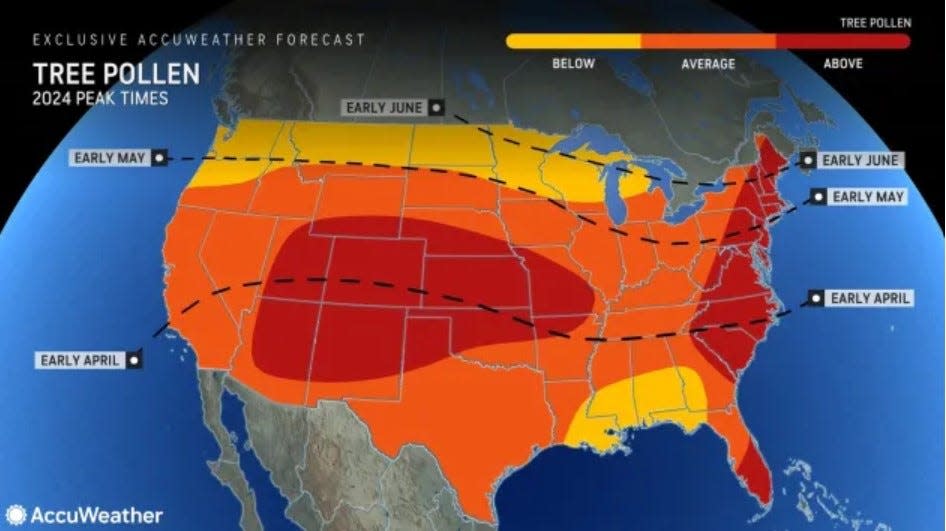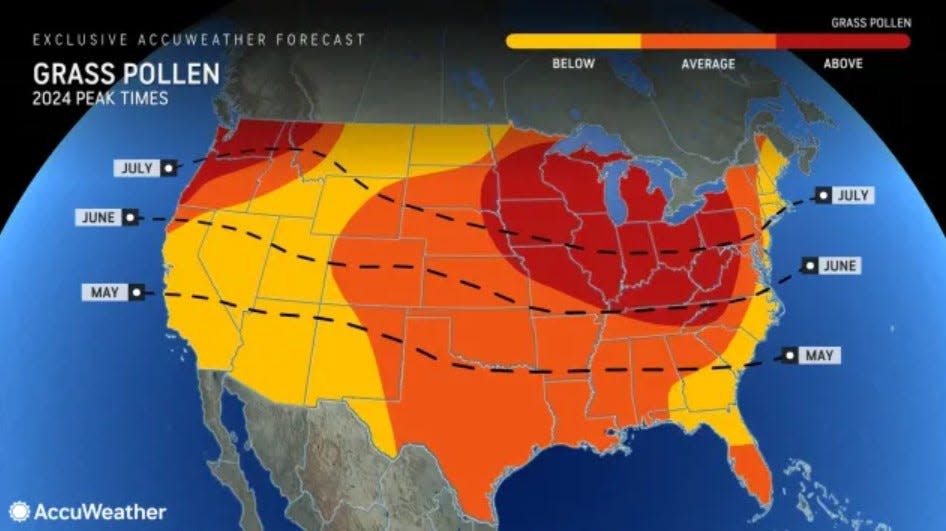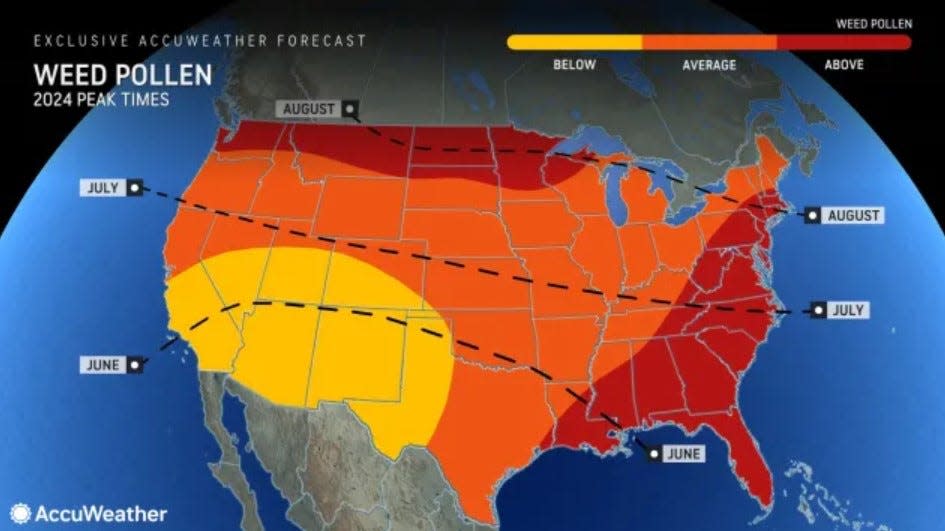Keep the nasal spray handy: RI is in for a long, intense allergy season
Editor's note: This story has been updated as of April 16, 2024
A mild winter has conspired with a warm and wet spring to create what's shaping up to be a long and intense allergy season in Southern New England, according to AccuWeather.
“This year will start off much earlier than most years in the East," said Alan Reppert, a senior meteorologist for AccuWeather. "We could look at things to be a full month ahead of normal with tree pollen, and still ahead when grass pollen starts."
Seasonal allergies affect 25.7% of adults and 18.9% of children in the United States, according to the U.S. Centers for Disease Control and Prevention. The big drivers of those allergies are tree pollen, grass pollen and weed pollen, which peak in that order from spring through late summer.

Drier midsummer weather could provide a pollen reprieve
Southern New England should expect worse-than-normal tree and weed pollen, but could get a break between those two when dry weather in the middle of the summer could slow grass growth and ease pollen production, Reppert said in a telephone interview.
"Across much of New England we're going to see above what we typically see for tree pollen," Reppert said.
With trees already budding, the tree pollen season has started and is expected to peak in May, according to Reppert. After a mild winter, March was the second rainiest on record with 12.05 inches of rain, and was 4.3 degrees warmer than normal, according to the National Weather Service.

Allergy season has been growing with increasing warmth
Allergy seasons have been getting longer and stronger because of warming temperatures, according to Climate Central, an independent group of scientists and communicators who report on the changing climate and its effect on lives.
Their analysis of temperature data for 203 U.S. cities shows the "freeze-free season" has lengthened by 15 days on average since 1970, according to the organization's website. For Providence, the freeze-free season has increased by 27 days, the organization says. Plants are leafing and blooming earlier, and the growing season is lasting longer across much of the country, Climate Central says.
"For millions of Americans who suffer from seasonal allergies to pollen and mold, climate change is bringing an earlier, longer and overall worse allergy season," Climate Central says.
For some, high pollen counts can lead to more than sneezing and itching. According to the Rhode Island Department of Health, pollen can be an asthma trigger.

Tips for avoiding pollen problems
"We let people with asthma know that they may want to limit outdoor physical activity on high pollen-count days," said Joseph Wendelken, a Health Department spokesman. "Someone who has asthma should have a plan with their health care professional about when and how to avoid any specific asthma triggers. That should also include information about any medications prescribed."
Daily pollen levels can be tracked on the AccuWeather app and at the website pollen.com.
AccuWeather offers the following tips for avoiding problems from pollen:
Start taking medication before issues begin
Avoid outdoor activities during late morning and afternoon
Keep car and home windows closed and use air conditioning instead during high pollen days
This article originally appeared on The Providence Journal: Health alert: RI residents should prepare for aggressive allergy season

